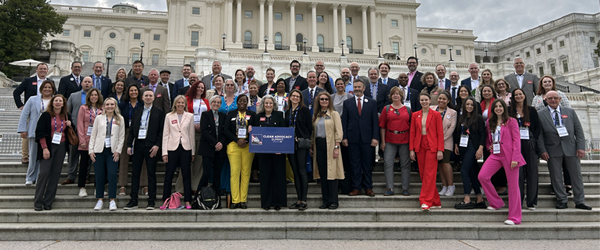Attracting Younger Sales Talent

The sales profession is changing, and unfortunately, it’s graying. Statistics show a professional salesperson’s average age is now 47.1 years old. Fifteen years ago, that number was 42. That means that our profession has aged five years in the last 15, and that’s unsustainable. The sales profession needs new blood.
With millennials now making up most of the workforce and Gen Z close behind, you might need to evolve your hiring practices to continue attracting top young sales talent. The old way of hiring salespeople–putting out a basic job description and waiting for resumes to trickle in–just won’t cut it anymore for recruiting younger generations. I’ve seen this in working with my clients, and I’ve seen some new methods generate remarkable results.
Sales managers must take a more proactive and strategic approach to stand out and connect with qualified candidates. Here are six updated hiring techniques that have been shown to be successful in reaching younger sales professionals.
Showcase your company culture
“Culture” isn’t just a buzzword anymore. Today’s younger workforce values culture, flexibility, and purpose when job seeking.
Showcase what makes your company culture and job opportunities unique when recruiting. Highlight your culture on your careers page, company website, and job posts. Let candidates know if you offer benefits like remote work options (sales is well positioned for this, in my opinion) and professional development programs. These attract young talent. Use images, videos, and employee spotlights so candidates can get a feel for your work environment.
Culture can make or break whether you connect with younger applicants. One key is that whatever you do, it must be authentic. Understand that even if you fake your culture, sites like Glassdoor will quickly let candidates know the truth.
Leverage social sourcing
Younger generations live their lives online and on social media. It would help if you incorporated social sourcing strategies into your hiring process to connect with talent where they already spend time.
Strategically post job openings in relevant Facebook and LinkedIn groups in your industry. Share and engage with content from top performers and rising sales stars you’d like to recruit and connect with. You can also identify passive candidates by searching profiles with relevant backgrounds or skills.
Social recruiting allows you to grab the attention of talented individuals who aren’t actively job seeking. This also means being innovative with respect to your recruiting message. Don’t be afraid to step out of your lane and try things like a video job ad (keep it to 60 seconds or less) or memes (funny or serious).
Post not only to the “normal” mediums like LinkedIn and Facebook, but also consider TikTok, YouTube Shorts, and Instagram. Remember, you can’t hire them if they don’t know you are hiring. Don’t be snobbish about the way you get your candidates. Just get them.
Highlight development opportunities
Younger sales talent care about career growth and acquiring new skills. If your company lacks structured development programs, highlight other growth opportunities in your job posts and outreach.
Better yet, build some structured development programs, starting with your 90-day onboarding program (you have one of those, right?). Mention if top performers have a chance to take on mentees, have access to skill-building resources, or can participate in stretch assignments. You want candidates to see that your company supports professional advancement so they envision future opportunities. Having one-on-one meetings with candidates to discuss career path trajectories are also powerful.
Showcase tech stack
Millennials and Gen Z candidates expect companies to harness modern technologies and encourage innovation from employees.
When recruiting, thoroughly describe your tech stack, such as sales engagement platforms, LinkedIn integration, data analytics, and automation tools you leverage (and if you aren’t already, get comfortable with phrases like “tech stack”). Discuss how your sales team utilizes technology to enhance productivity. Today, you’d better be comfortable discussing artificial intelligence (AI) as a sales tool. You want tech-savvy candidates to see you provide cutting-edge resources to drive results.
By the way, if you aren’t using tech to drive sales results, start doing it. The sales profession isn’t going to be backtracking to a low-tech environment anytime soon.
Convey company mission and impact
Younger people increasingly seek out purpose-
driven work. When recruiting new team members, sales managers should communicate how their company’s mission makes a difference and highlight recent company impact metrics.
For example, explain how your product or service tangibly helps customers. If you have community involvement programs, those should be part of your messaging.
One fear I’ve heard is that sales managers are reluctant to get into politics with candidates. That’s fine; you don’t need to. Companies can be seen as positive without being seen as taking a particular political stance.
Respond quickly
Social media has conditioned younger generations to expect quick likes, comments, and attention. If you want to succeed in hiring, get used to doing the same.
I used to recommend that managers collect resumes for a week, sort through them, pick ones to call, and then call. Now, the best practice is to receive a resume, do a quick scan of it, and then call right then. If your candidate doesn’t answer, you should also email and text. You want the candidate to get that quick dopamine hit that comes with an immediate response and then give multiple ways to get back to you.
Never mistake this: You are competing for talent in a highly competitive environment. If some of the tactics above resemble ways that you’d compete for customers, that’s not an accident. Compete for sales talent with the same intensity as you compete for customers. If you do this, you’ll have a great sales team and leave many of your competitors behind.















